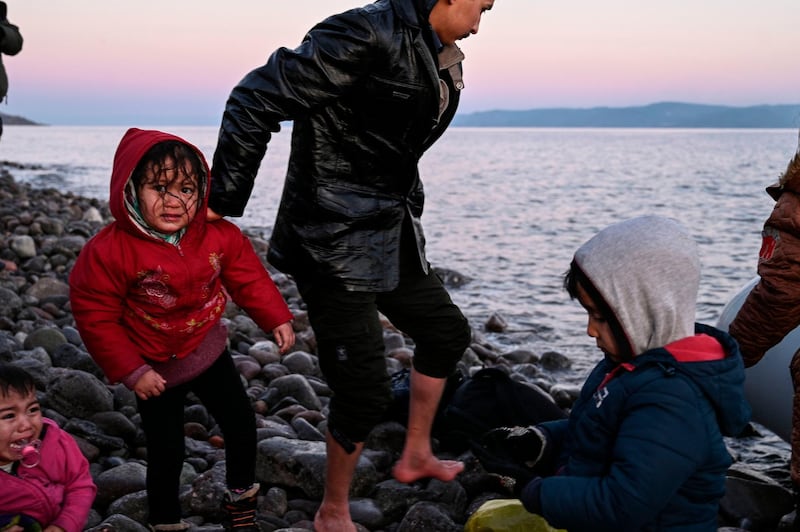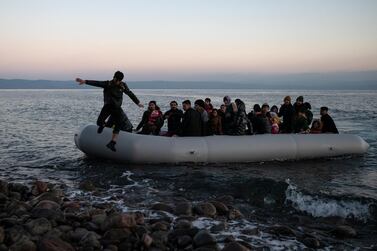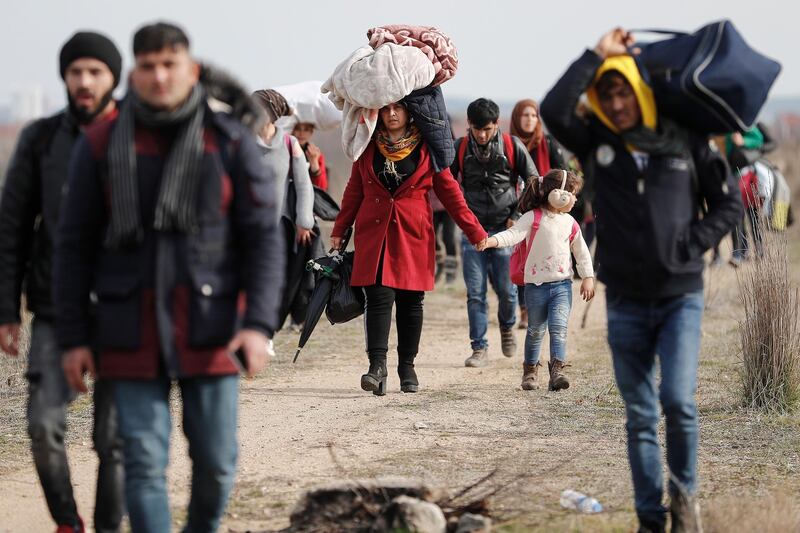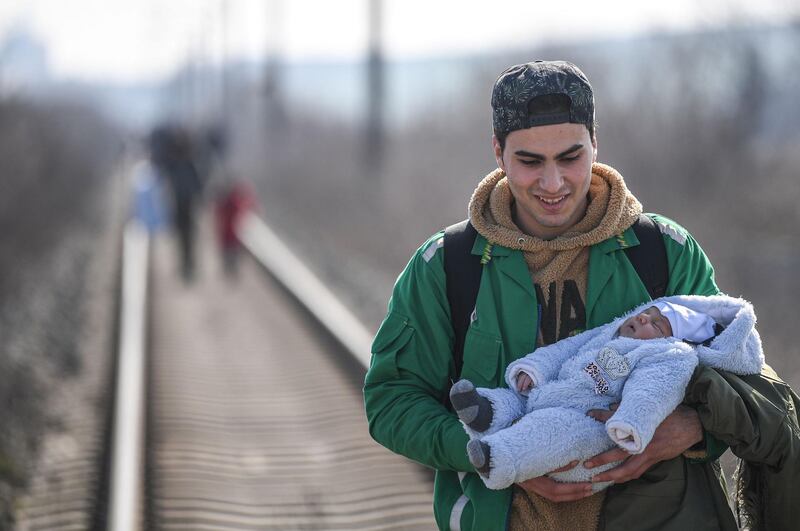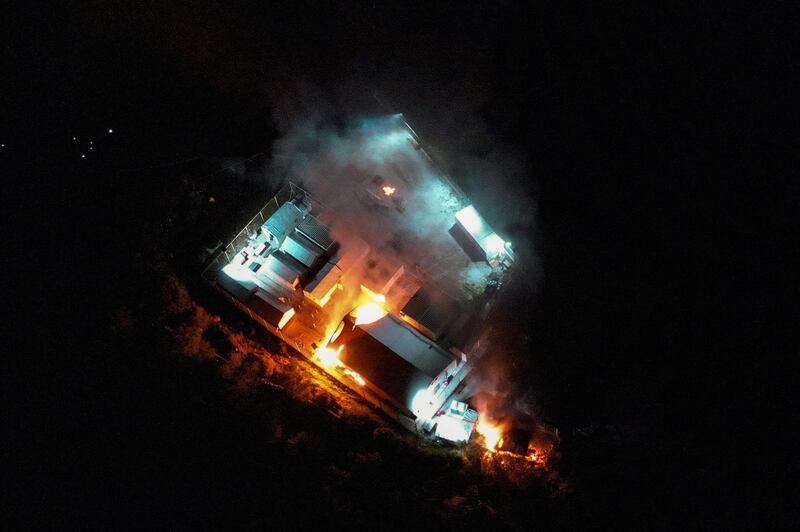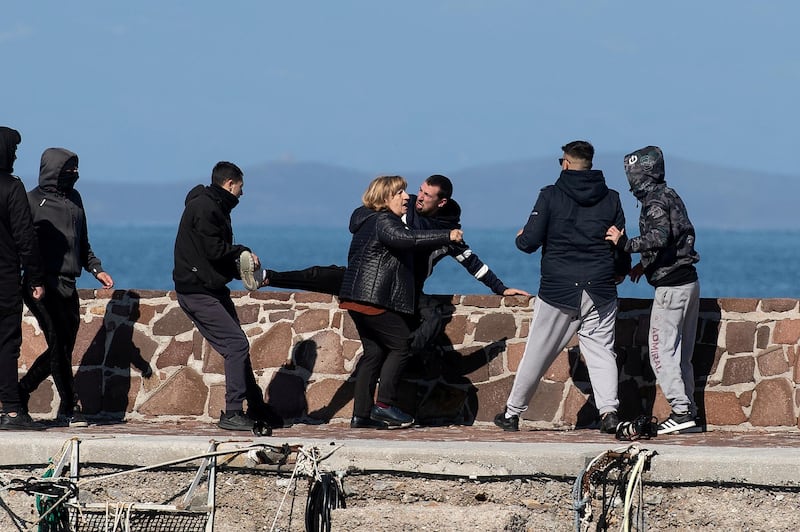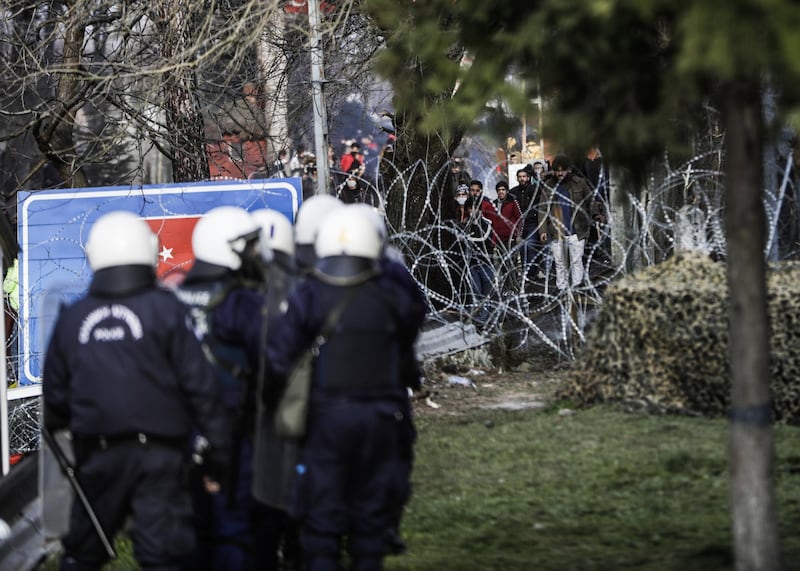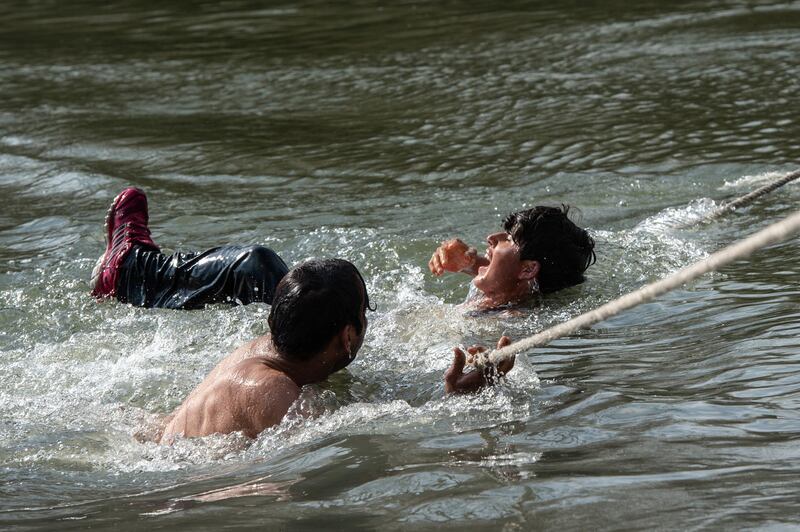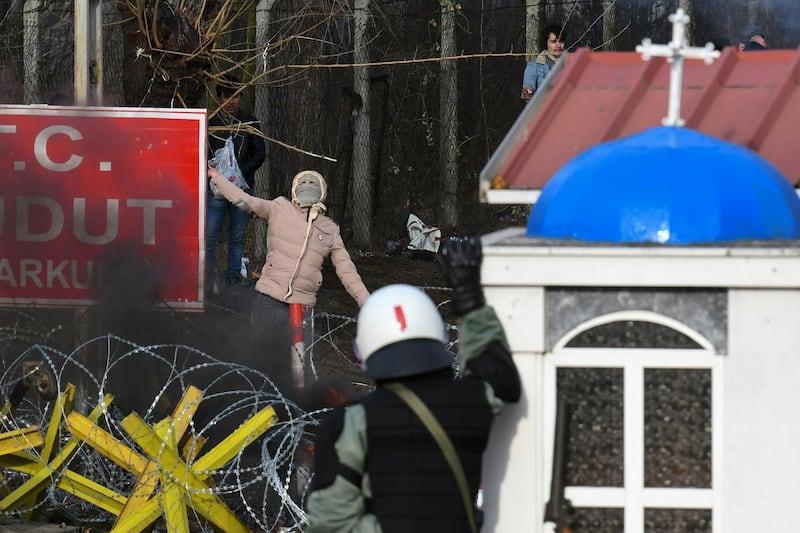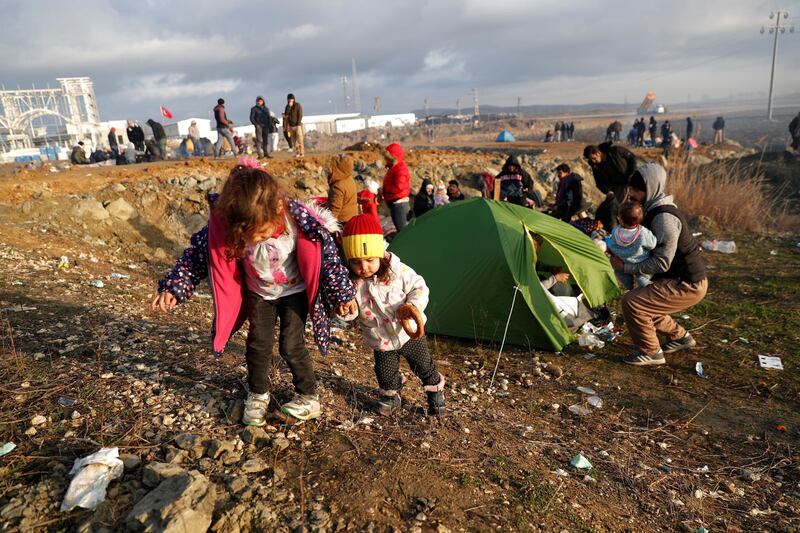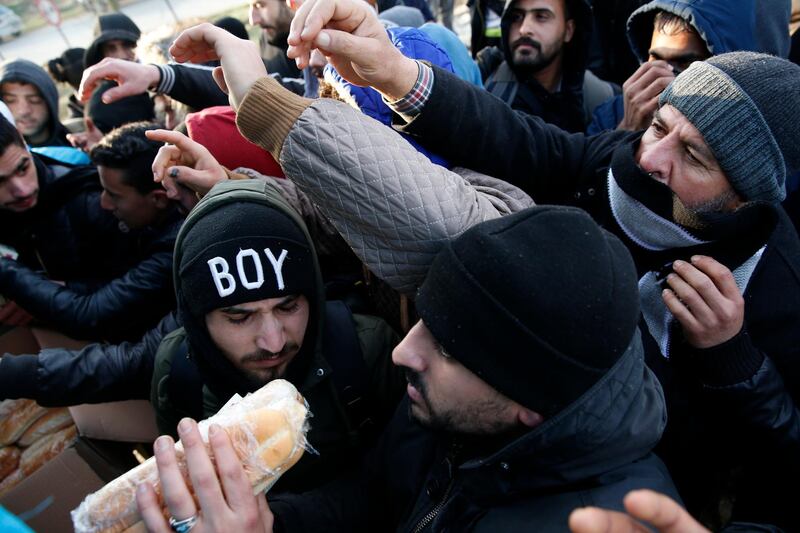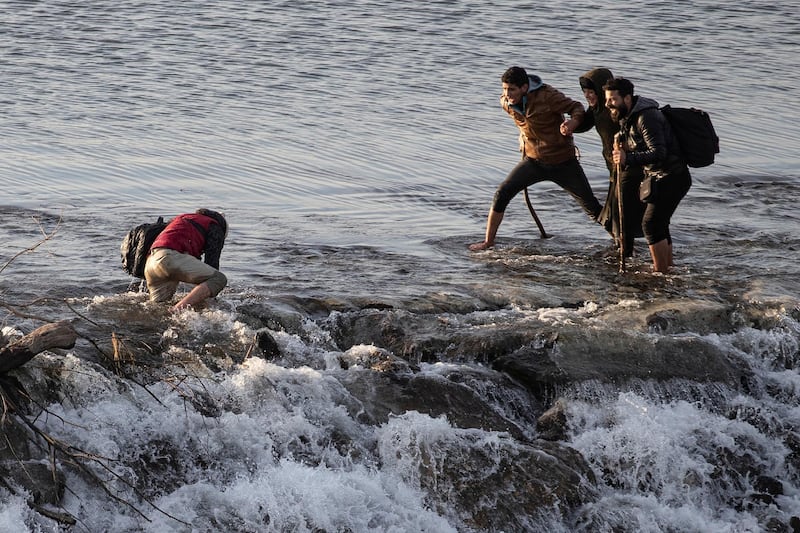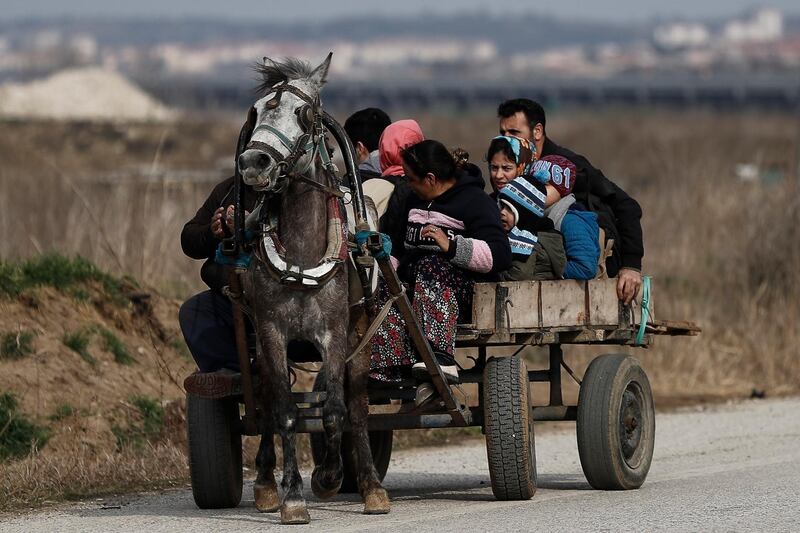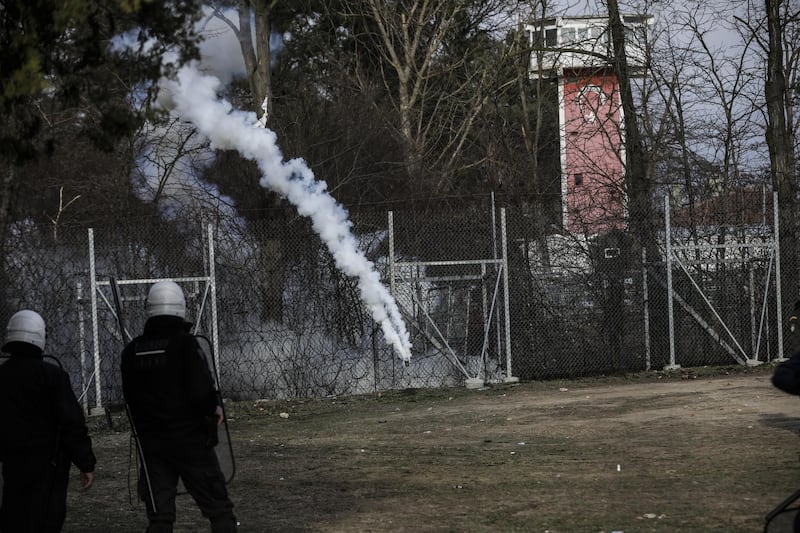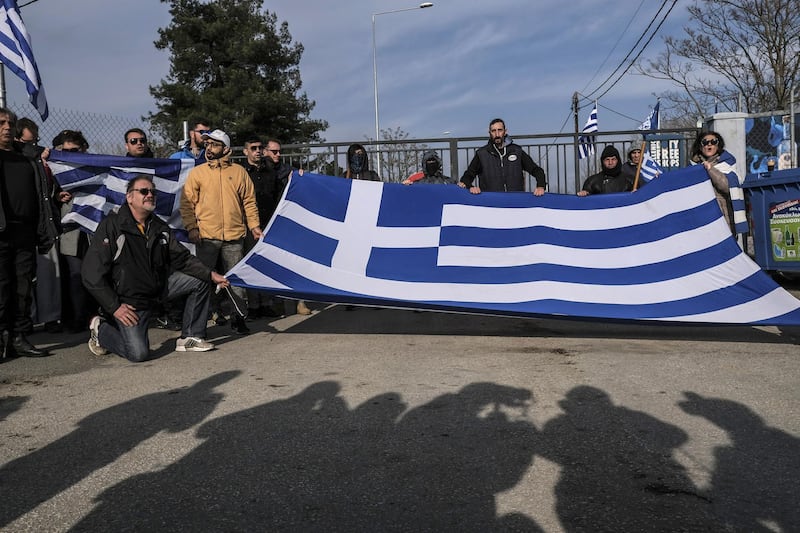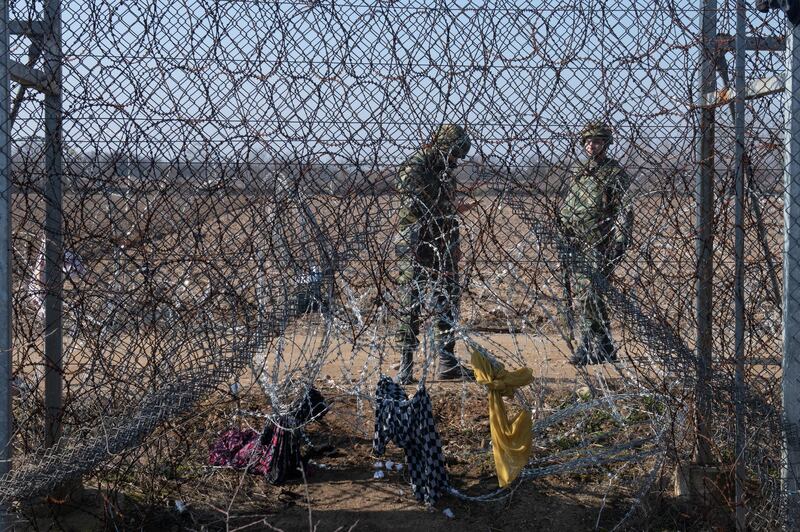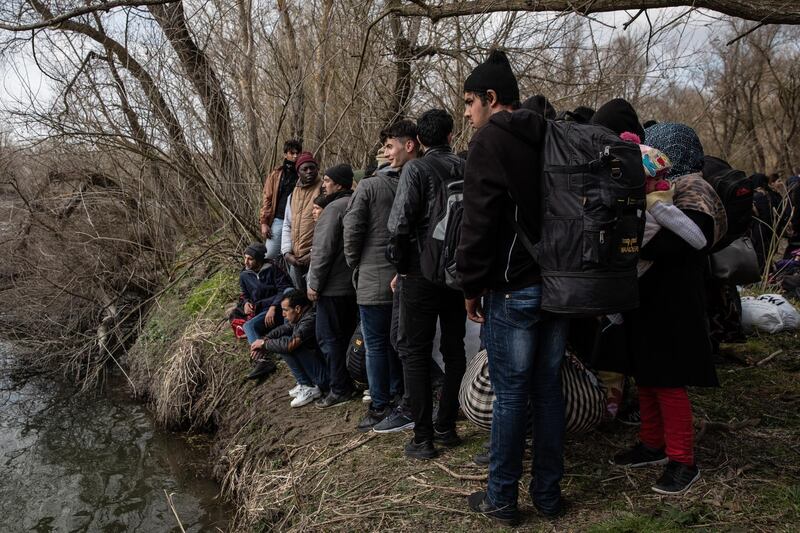A young boy died after being pulled from the sea when a makeshift raft packed with migrants capsized near the island of Lesbos, Greek officials said on Monday.
No details were given on the nationality or age of the child, but the Greek coastguard said the raft had been escorted to the island by a Turkish vessel.
The boy’s death is the first reported fatality since Turkey last week announced it would no longer prevent migrants and refugees from heading on to Europe.
That sent migrant numbers soaring as Ankara sought to put pressure on Brussels over the situation in Syria.
A spokesman for the Greek port police said two children were found unconscious after the vessel overturned in the Aegean Sea about 8.30am local time.
Turkish security sources told Reuters a Syrian migrant had died from injuries on Monday after Greek authorities intervened to stop migrants crossing from Turkey into Greece, but Athens said the claim was “fake news”.
Another 46 people were rescued from the water unharmed, the official said.
Meanwhile, Greek border forces urgently tried to maintain the security of Europe’s eastern frontier from a urge in the number of refugees and migrants.
The Turkish government on Monday shared a video it says shows the Greek coastguard confronting a dinghy carrying migrants.
In it, a coastguard vessel passes the dinghy at speed, creating high waves, before the crew fire warning shots and try to deter the migrants with poles.
The number of people trying to reach the EU shot up when Turkish President Recep Tayyip Erdogan said his country had “opened the doors” to Europe.
The announcement came after a Syrian government air strike killed at least 33 Turkish soldiers in Idlib on Thursday.
Under a 2016 deal, Turkey had agreed to stop migrants travelling to the EU in exchange for financial support.
On Sunday and Monday, about 1,300 asylum seekers arrived on Greece’s five Aegean islands that lie close to the Turkish coast, the Greek asylum service said.
“This is an invasion,” Development Minister Adonis Georgiadis told Skai TV.
Most of them landed on the island of Lesbos, which hosts the severely overcrowded Moria camp, designed to hold fewer than 3,000 people but already home to more than 19,000.
“We have children four days without food,” one man shouted from behind a wall of barbed wire near the Kastanies border post as Greek riot police stood ready to repel anyone trying to illegally cross its frontier.
More than 10,000 migrants, mostly from Syria, other Middle East states and Afghanistan, have reached Turkey's borders with EU members Greece and Bulgaria.
Greek officials accused Turkey of orchestrating a co-ordinated effort to drive migrants across the frontier.
"This movement is guided and encouraged by Turkey," government spokesman Stelios Petsas said after a national security meeting in Athens.
Mr Petsas called the surge of migrants at the border "an active, serious, severe and asymmetrical threat to the national security of the country".
Late on Sunday, Greek Prime Minister Kyriakos Mitsotakis said Greece was determined to protect its borders and warned migrants not to try to cross because security was increased to the maximum.
Clashes between police and migrants broke out at the border over the weekend and riot police used tear gas to repel hundreds of migrants on the Turkish side.
Turkish authorities claimed a Syrian man had been killed in the border clashes, but Athens rejected the story as “fake news”.
There were unconfirmed reports that Turkish soldiers had helped migrants to cut their way through border fences to reach Greece.
“This is an invasion," Development Minister Adonis Georgiadis told broadcaster Skai TV on Monday.
Greece has suspended all new asylum applications for the next month but was criticised for the move by the UN High Commission for Refugees.
"Neither the 1951 Convention Relating to the Status of Refugees nor EU refugee law provides any legal basis for the suspension of the reception of asylum applications," the agency said.
‘The doors are now open’
Mr Erdogan on Monday warned Europe that it would have to shoulder its part of the refugee crisis started by violence in Syria.
"After we opened the doors there were calls saying, 'Close the doors'," he said.
"I told them, 'It's done. It's finished. The doors are now open. Now, you will have to take your share of the burden'."
Mr Erdogan said migrants and refugees were heading for Europe in their “hundreds of thousands" and that the numbers would increase.
"There will be more," he said. "Soon, this number will be expressed in millions."
A spokesman for German Chancellor Angela Merkel said the EU expected Turkey to uphold its part of the 2016 deal.
EU chiefs are due to visit the Greek border on Tuesday, amid fears of a repeat of the migrant crisis that poisoned European politics in 2015.
Turkey is home to more than 3.5 million Syrian refugees and has another million on its doorstep from a surge of fighting in Idlib, in Syria’s north-west.
Turkey launched a military operation in the rebel-held territory after weeks of mounting tension with the regime, which has unleashed a devastating offensive to retake the province.
